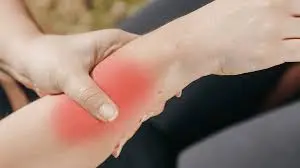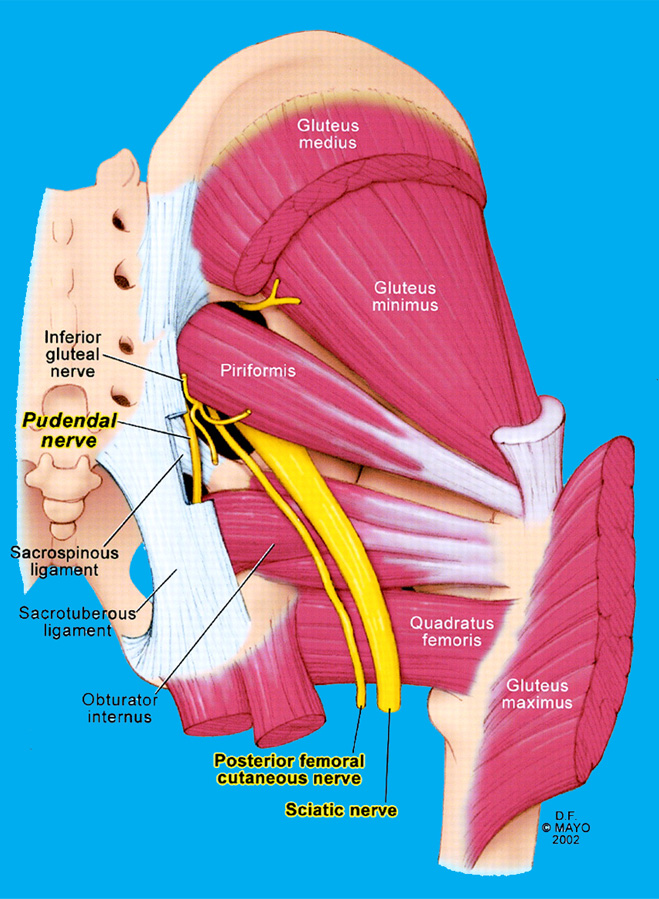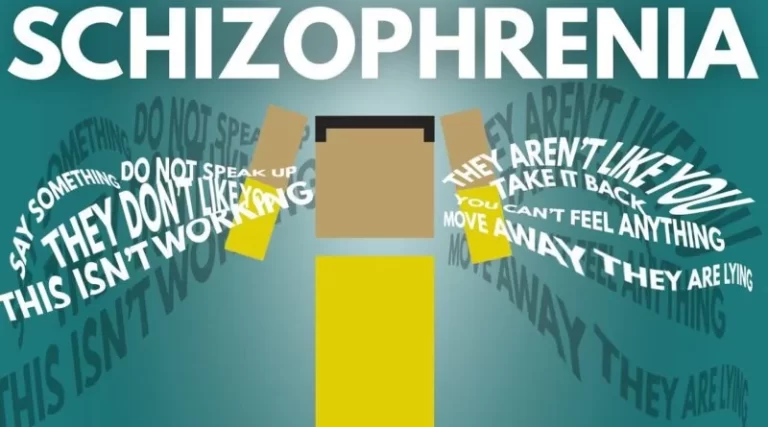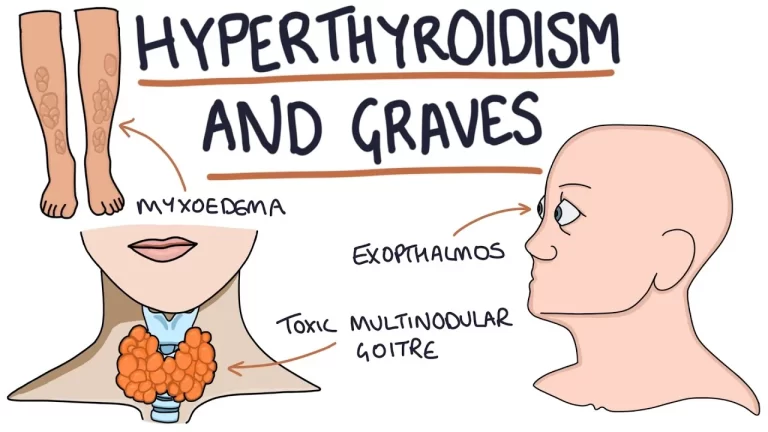Tourette Syndrome
- Tourette syndrome is a disorder that causes uncontrollable movements and vocal sounds known as tics. It sometimes shows up in early childhood and improves in adulthood.
- Tics can be mild or serious. About 200,000 people in the U.S. have a serious form of Tourette syndrome. Medication and therapy can assist reduce tics.
Table of Contents
What is Tourette syndrome?
- Tourette syndrome (TS) is a neurological disorder that harms the brain and nerves. Tourette syndrome (TS) causes a person to make sudden movements or sounds known as “tics.” Tics are involuntary, so you can not control or prevent them. Motor tics involve body movements, such as shoulder shrugging. Vocal tics involve the voice, such as throat clearing. Motor tics tend to develop precautionary vocal tics.
- Tourette syndrome, or Tourette’s, commonly develops in early childhood. It often increases as you become an adult. Tourette syndrome (TS) is the most serious type of tic disorder.
How common is Tourette syndrome?
- About one in 100 children have a certain form of tic disorder. Tourette syndrome is less usual. It harms about one out of 160 children.
Is Tourette’s the only tic disorder?
- Tourette syndrome is the most serious tic disorder, but there are other types. Your healthcare provider (doctor) will use your symptoms to determine what kind of tic disorder you have.
Tic disorders involve:
- Provisional tic disorder: Motor or vocal tics (one or both) for a decrease than one year.
- Persistent (chronic) tic disorder: Motor or vocal tics (not both) for greater than one year.
- Tourette syndrome: Motor and vocal tics (both) for greater than one year.
What causes Tourette syndrome?
- The perfect cause of Tourette syndrome (TS) is unknown. The condition after from runs in families, so genes probably play a role. Problems with how your brain metabolizes (breaks down) neurotransmitters may also contribute to Tourette syndrome (TS). Neurotransmitters, like dopamine, are chemicals in the brain that regulate behavior and movement.
What are the risk factors for Tourette syndrome?
Risk factors for Tourette syndrome involve:
- Gender: Males are three to four times more likely than females to develop Tourette syndrome (TS).
- Family history: Parents may pass Tourette syndrome (TS) down to children through genes (inherited).
- Prenatal health: Children born to mothers who smoked or had health complications during pregnancy may be at a higher risk for Tourette syndrome (TS). Low birth weight may also increase the chances of Tourette syndrome (TS).
What are the symptoms of Tourette syndrome?
- Tics are an important symptom of Tourette’s. They commonly start between ages five and seven, peaking around age 12.
Tics are complex or simple:
- Complex tics include many movements and muscle groups. Jumping is a complex motor tic. Repeating some words or phrases is a complex vocal tic.
- Simple tics are quick, repeated movements that only include a few muscle groups. Shoulder shrugging is a simple motor tic. Sniffing is a simple vocal tic.
Other examples of motor tics involve:
- Arm jerking.,
- Bending at the waist,
- Eye blinking,
- Head jerking or twisting,
- Hopping,
- Jaw movements,
- Twisted or distorted facial expressions.
Examples of vocal tics involve:
- Barking
- Grunting
- Shouting
- Sniffing
- Throat clearing.
Are tics ever harmful?
- Certain tics are harmful, such as motor tics that cause someone to hit themselves in the face. A vocal tic known as coprolalia leads to swearing or inappropriate language.
- This type of tic can create someone seems purposefully disruptive or offensive, even though it is an uncontrollable impulse. Children with coprolalia might get unwarranted punishment at school or at home.
How is Tourette syndrome diagnosed?
- For a healthcare provider (doctor) to diagnose someone with a tic disorder, the tics must have started before the age of 18. To diagnose you with Tourette’s, you must have been experiencing motor and vocal tics (both) for greater than a year.
- There is no blood test or imaging exam that can detect Tourette syndrome. Instead, your healthcare provider (doctor) carefully reviews your medical history and symptoms.
They may ask detailed questions about the tics, involving:
- How often do the tics happen?
- At what age did the tics start?
- What is the nature of the tics (simple or complex)?
- Your healthcare provider (doctor) may also do tests to rule out other conditions that could be causing tics.
Does Tourette’s ever occur with other health conditions?
Most people with Tourette’s have another health condition. These are usually mental or behavioral health disorders, involving:
- Anxiety disorders,
- Attention deficit hyperactivity disorder (ADHD),
- Autism spectrum disorder (ASD),
- Learning disabilities
- Obsessive-compulsive disorder (OCD)
- Oppositional defiant disorder (ODD)
- Depression
What is the treatment for Tourette syndrome?
- Mild tics that do not affect everyday activities might not need treatment. However, severe tics can create it hard to function at work, school, or in social situations. Certain tics even lead to self-injury. In these cases, medication or behavioral therapy may assist.
How can medication help Tourette syndrome?
- Your healthcare provider (doctor) may recommend neuroleptics for Tourette syndrome (TS). Neuroleptics are drugs that restrict the activity of dopamine in the brain. Dopamine is a chemical that can improve tics. Other medications can help manage conditions that happen with Tourette’s, such as ADHD or OCD.
- Haloperidol (Haldol), fluphenazine (Prolixin), and pimozide (Orap) work on a brain chemical known as dopamine to control tics.
- Clonidine (Catapres) and guanfacine (Tenex, Intuniv)), high blood pressure drugs that can treat tics.
- Fluoxetine (Prozac), paroxetine (Paxil), sertraline (Zoloft), and other antidepressants, can relieve anxiety, sadness, and obsessive-compulsive symptoms.
- Along with medicine, you may want to consider telling therapy. A psychologist or counselor can assist you to learn how to deal with the social issues your tics and other symptoms may cause.
How can behavioral therapy help Tourette syndrome?
- The tics associated with Tourette’s are involuntary, so they are not something you can control. Yet new therapies assist people to manage tics and reduce their negative effects.
Comprehensive Behavioral Intervention for Tics (CBIT) assists people:
- Respond to tics: Doing a new and different action when a tic happens is a “competing response.” A voluntary action (shutting your eyes) limits the involuntary action (blinking).
- Recognize tics: Sometimes people feel a sensation right previous a tic occurs known as a premonitory urge. By acknowledging this urge, they may be able to mask or suppress the tic.
- Reduce tics: Excitement or anxiety tend to create tics worse. Staying calm and avoiding stressful situations may decrease the frequency of tics.
Physiotherapy Management for Tourette’s Syndrome
- The exact treatment and cure for Tourette’s Syndrome (TS) are not known yet but physical therapy or exercises help manage the symptoms of the disorder and in addition, keep the mental health of the individual in a good state. Though it is short-lived, stretching and physical exercises help manage tics to some extent.
- As physical therapy exercises have been known to ameliorate the health of individuals holistically, likewise, it has shown significant results in managing symptoms of Tourette’s Syndrome (TS) too. The physical therapy protocol includes 2.5 to 3 hours of intervention accompanied by regular exercise sessions which are to be done on the regular basis for six weeks to three months, in accordance with the severity of the disorder.
- The detailed protocol of physical exercises might involve kickboxing and a 30 mins session for aerobic exercises. At home, the individual should try to indulge in daily chores such as sweeping.
- As, while sweeping the movement indulges the axial dorsal and cervical muscle groups which might assist in attenuating the tics for a significant period of time.
- The physical therapy sessions can be led at home by the therapist or at the clinical premises only. With the indulgence of physical therapy management, the effect of the comorbidities decreases or subsides to a particular extent, thereby, decreasing the frequency of occurrences of tics and the severity of the disorder.
The physiotherapy management for Tourette’s Syndrome (TS) includes the following:
- Postural training and control,
- Introducing a home exercise program,
- Physical therapy for muscle tone or general tone,
- Pain management and prevention,
- Cardiovascular management,
- Coordination exercise training,
- Pelvic floor therapy and exercises so as to decrease the frequency of enuresis to further promote the reduced occurrence of bedwetting,
- Sensory integration training,
- Behavior therapy,
- Dysgraphia training,
- Speech therapy which includes swallowing difficulty management,
- Pragmatics skill training,
- Assistance for stuttering.
- Note- Physical therapy and exercises might be modified in accordance with the comfort, severity, & symptoms of the disorder which varies from one individual to the other.
Is Tourette syndrome preventable?
- Tourette syndrome is not preventable. But, early detection and treatment may prevent Tourette syndrome (TS) from worsening or lasting into adulthood.
What is the outlook for someone living with Tourette syndrome (TS)?
- There is no cure for Tourette syndrome. The condition commonly improves in early adulthood. Tics may still occur, yet most adults do not need to continue medication or therapy. People with Tourette syndrome (TS) have a normal life prospects.
What can I do to create living with Tourette syndrome easier?
- Living with Tourette syndrome (TS) can challenging, especially for children. It might be difficult for them to focus on schoolwork and interact with others. A strong support system of friends, family members, and teachers assists children to manage Tourette’s.
Children with Tourette’s may benefit from:
- Being in classes with fewer students,
- Getting personalized attention at school,
- Having more time to complete assignments.
When should I contact my healthcare provider (doctor) about Tourette syndrome?
Contact a healthcare provider (doctor) right away if someone with Tourette syndrome (TS):
- Becomes violent,
- Injures themselves.
NOTE
- Tourette syndrome is a neurological condition. It causes someone to create involuntary movements or sounds known as tics. The disorder starts in childhood and commonly decreases in early adulthood.
- Medication and behavioral therapy are the most usual treatments for Tourette syndrome (TS). Neurologists or psychiatrists can care for Tourette’s.
FAQs
The exact cause of Tourette syndrome (TS) is not known. It is a complex disorder likely caused by a combination of inherited (genetic) and environmental factors. Chemicals in the brain that transmit nerve impulses (neurotransmitters), involving dopamine and serotonin, might play a role.
Although there is no precaution for Tourette Syndrome (TS), there are treatments to help manage the tics caused by Tourette Syndrome (TS). Many people with Tourette Syndrome (TS) have tics that do not get in the way of their living their daily life and, therefore, do not need any treatment.
Tourette symptoms commonly appear in childhood, usually when kids are between 5–9 years old. It is not very common, and boys are more likely to be affected than girls. The exact cause of Tourette syndrome is not known, yet some research points to changes in the brain and problems with how nerve cells communicate.
Tourette’s can cause problems for children’s physical, mental, & emotional well-being. Education can assist reduce negative beliefs about Tourette, improve access to health care, ensure a timely diagnosis, and ultimately help children with Tourette’s lead healthy and productive lives.
In most cases, tics increase over time or stop completely. Sometimes they may just last a few months, yet often they come and go over several years. They are normally most severe from around 8 years of age until their teenage years and usually start to improve after puberty.
Certain individuals may become tic-free or no longer need medication to control their tics. In certain cases, tics may worsen in adulthood. Tourette Syndrome (TS) is not a degenerative condition (one that continues to get worse) and individuals with Tourette Syndrome (TS) have a normal life expectancy.
People with Tourette’s syndrome can have moods and behavioral problems, such as attention deficit hyperactivity disorder (ADHD) obsessive-compulsive disorder (OCD) depression, or anxiety.
Tourette syndrome does not impact normal life expectancy nor does it impair intelligence or cause mental retardation. However, for some individuals, motor tics such as sudden jerking of the head may be painful and certain children with the condition may experience learning difficulties.






